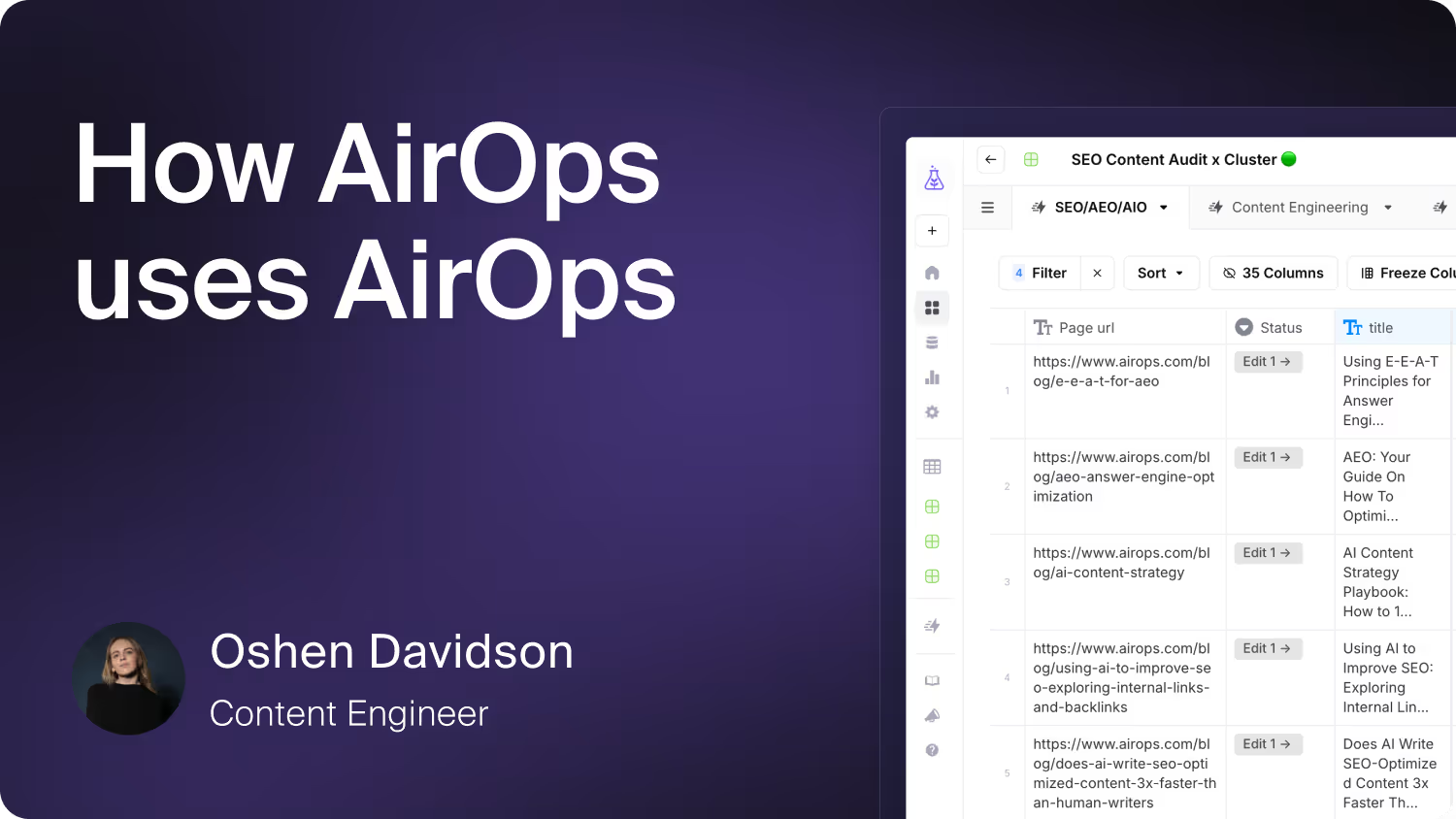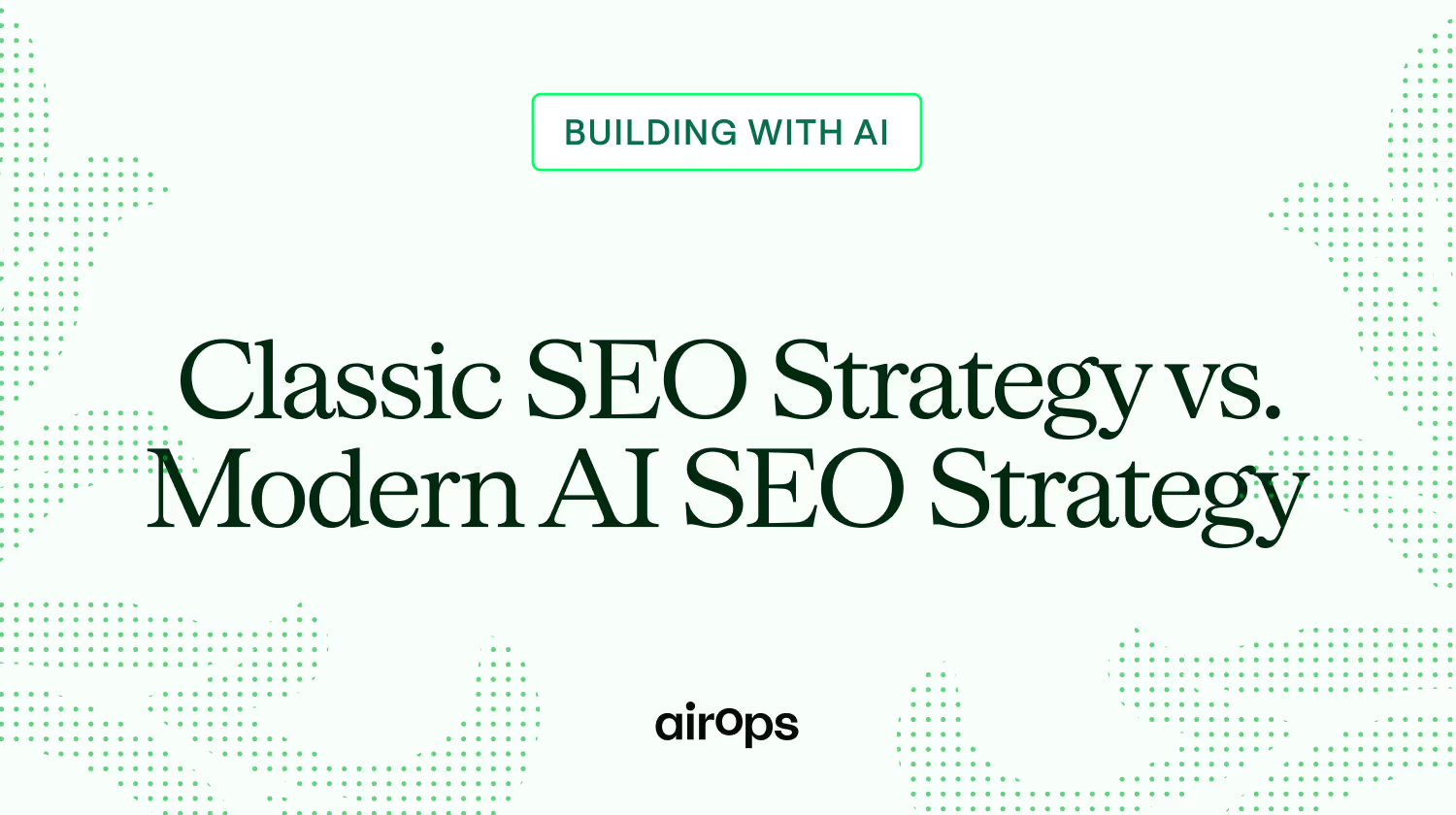The SEO Productivity Trap: How AI Recreates Jevons Paradox
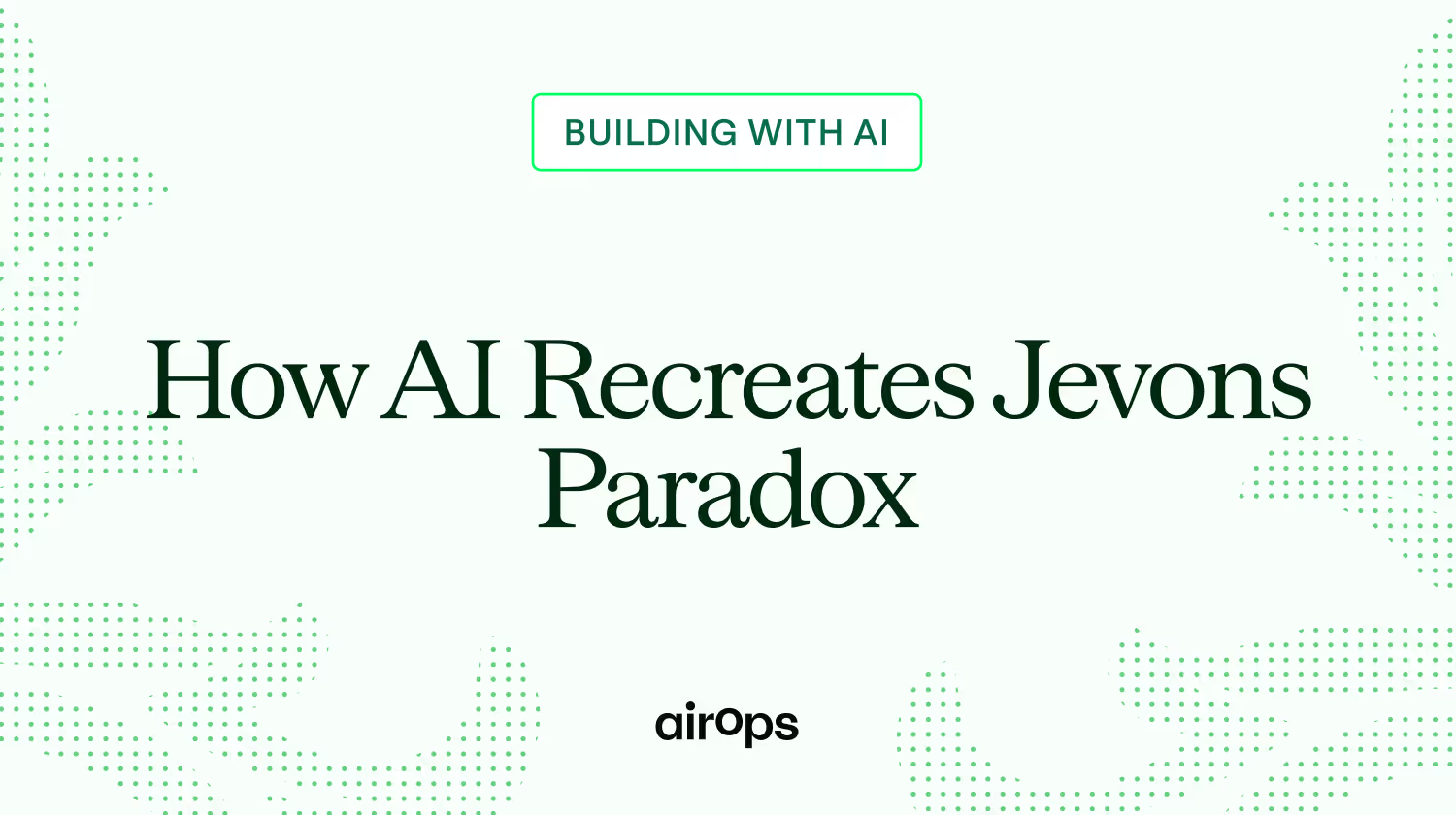
AI has made content creation exponentially more efficient but that hasn’t reduced the demand for content. It’s exploded it.
This is Jevons Paradox in action: the more efficient AI makes content production, the more content gets produced…and the harder it becomes to stand out.
With more AI capabilities, the Jevons Paradox is gaining renewed attention. Take this recent tweet from Satya Nadella, the CEO of Microsoft:
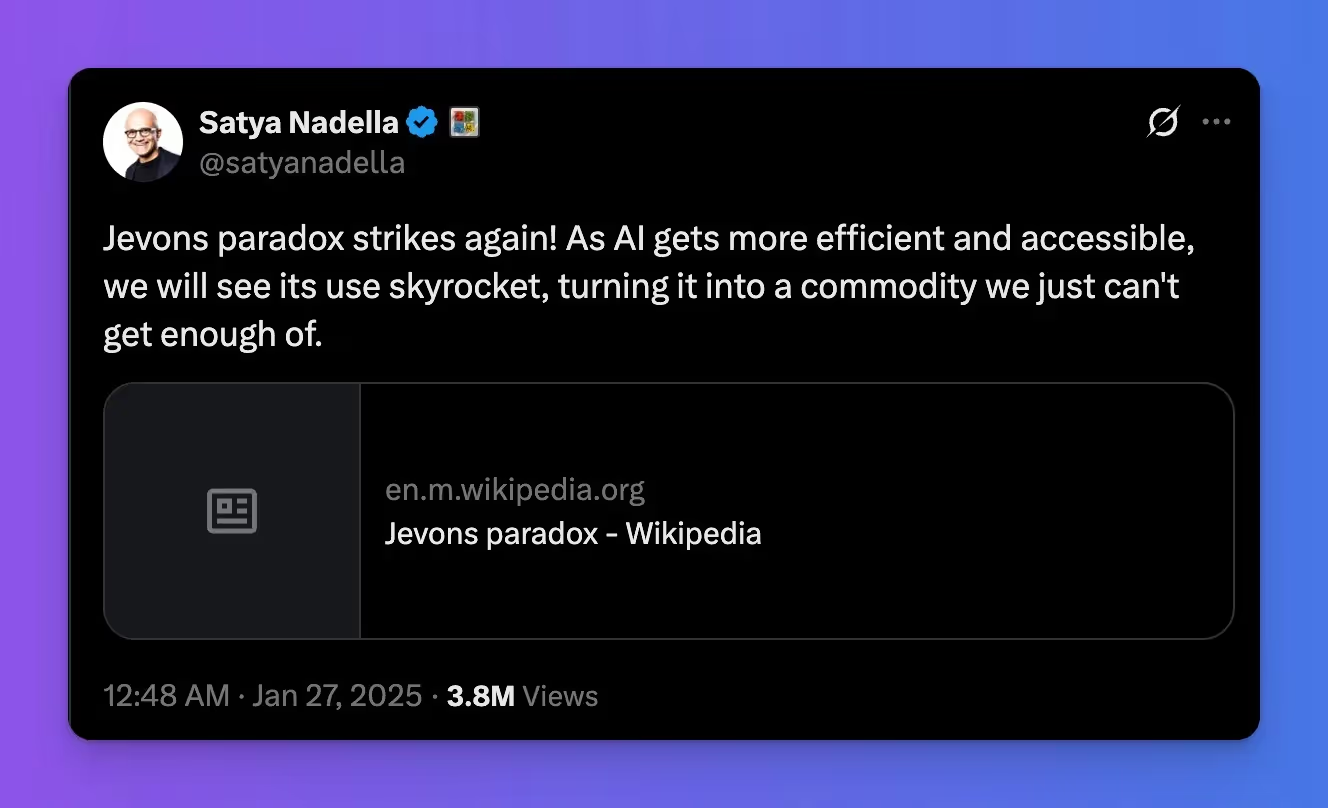
As AI revolutionizes various industries, including search engine optimization (SEO) and content creation, it's crucial to understand what Jevons Paradox means.
So what’s the paradox? Economist William Stanley Jevons observed that as technological improvements make a resource more efficient, total consumption of that resource can actually increase, not decrease. Originally, this applied to coal: making coal-burning engines more efficient didn’t reduce coal usage. It made coal more useful, so people used more of it.
At its core, the Jevons Paradox suggests that efficiency improvements can lead to increased demand for a resource, ultimately resulting in higher overall consumption.
Key Takeaways
- Efficiency doesn't always reduce consumption: The Jevons Paradox highlights that increased efficiency can paradoxically lead to increased resource consumption.
- Lower costs drive demand: As efficiency improves and costs decrease, the resource becomes more accessible, encouraging greater adoption and use
How the Jevons Paradox Applies to AI in SEO and Content
Now apply that idea to AI and content creation and the integration of AI into SEO processes:
1. AI makes content production dramatically cheaper and faster.
What used to take a content team a week now takes a prompt and a few minutes. Briefs for SEO, outlines, metadata, content optimization and even full articles can be automated.
2. But instead of reducing content production... it accelerates it.
Here’s the paradox: Because it's cheaper and faster, companies produce more content, not less. The barriers to entry for SEO drop, so more players flood in. The internet gets more crowded, more saturated, and more competitive.
3. So AI increases demand for...
- Content differentiation. You need a better strategy, a strong brand, and a perspective that sets you apart.
- Smarter distribution. Search is multi-surfaced now, especially with X posts, LinkedIn pages, and Reddit answers appearing in the search results. You’ll also have to rethink how you drive brand demand with assets that you own (like email).
- Higher-quality prompts and workflows. If the market is flooded with new content, it’s not helpful to add to the noise. You don’t have to focus on raw output. But that doesn’t mean you completely ignore AI. You can leverage it in your production processes to publish faster, such as in your ideation, research, and outline stages.
Just as the printing press required new roles (editors, publishers, distributors), the rise of AI in SEO and content is forcing a re-architecture of content teams themselves. The question isn't just how much can you produce—it's how well can your team operationalize the entire lifecycle, from idea to impact.
That’s why Content Engineers are becoming more and more essential. They’re the connection to operationalize these processes.
According to our recent State of Content Teams report, these areas are where teams have big bottlenecks and tools like AirOps can improve those processes.
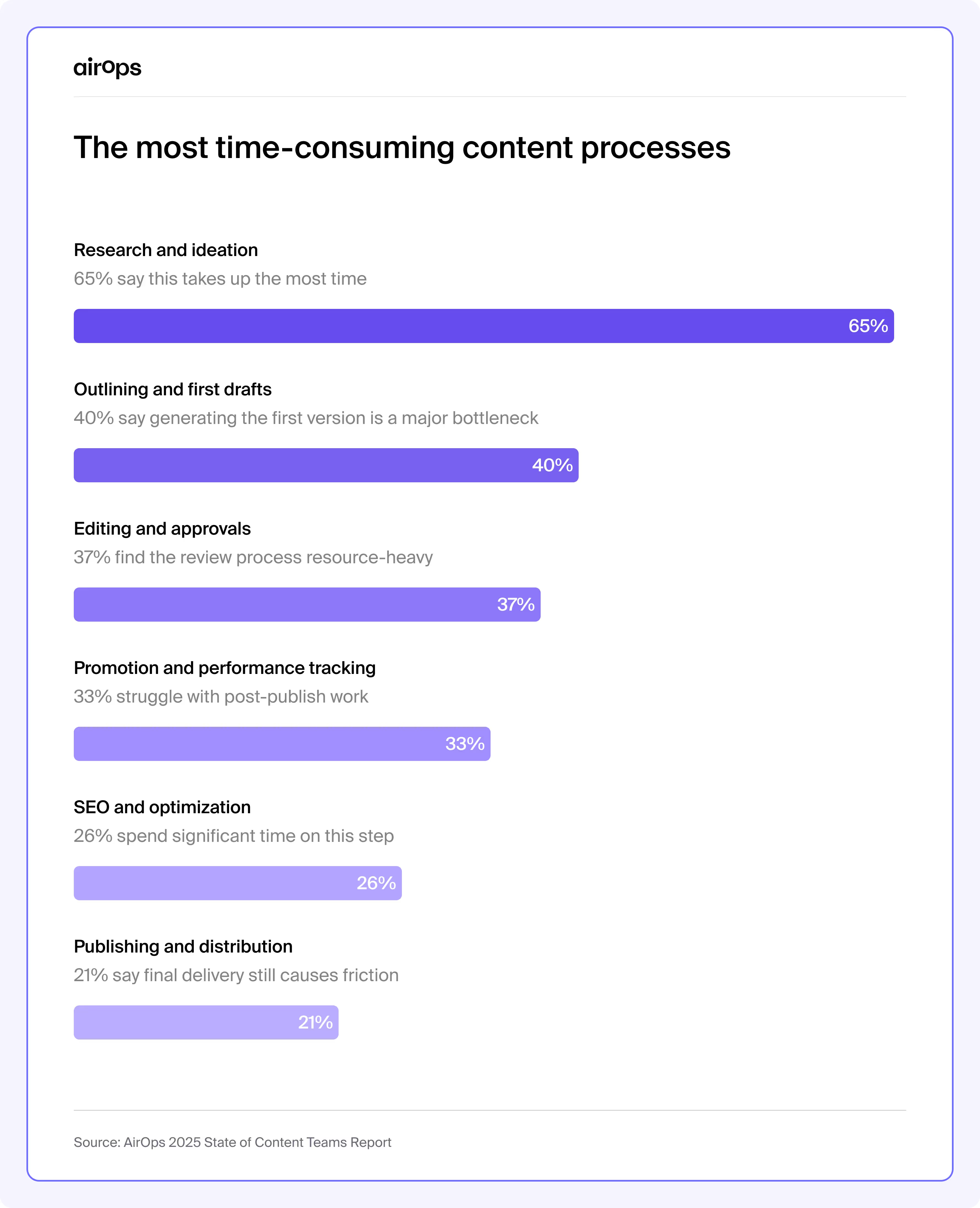
As AI tools become adept at tasks like keyword research and content optimization, they empower businesses to implement strategies with greater precision and reduced costs.
The demand for AI will be amplified, spurring on competition
As AI tools simplify intricate processes, they diminish the barriers for agencies especially to. leverage sophisticated SEO strategies that were once exclusive to larger players.
- Broader use: The affordability and accessibility of AI tools will help more companies and agencies adopt advanced SEO techniques, and then intensify the competition
- Reduced barriers: Historically, the complexity and cost of advanced SEO techniques restricted their use but now that playing field is flattened
- Competitive dynamics: With more companies embracing AI for SEO, the need to differentiate through strategy and brand, spurring further investments in cutting-edge technologies.
When everyone has, the workflow is the advantage
If AI makes everyone faster, then speed stops being a differentiator. What replaces it? Strategy, orchestration, and judgment. Content leaders will win not by doing more, but by building internal systems that prioritize:
- Right-topic identification: Where content can actually move the business.
- Efficient delegation: Knowing what to outsource to AI vs. what needs human POV.
- Quality control and refresh cycles: AI makes it easier to maintain evergreen content, but teams still need editorial standards.
How Webflow refreshed content with AirOps for 40% increase in traffic
When Webflow’s SEO team hit the limits of traditional content scaling, they turned to AirOps to help.
Before: The manual work of their content refresh processes severely limited their ability to grow efficiently. Each individual article update required hours of keyword research, competitor analysis, writing, editorial reviews, and manual CMS updates, limiting their refresh capacity to a handful of articles per month.
After: With AirOps, they rebuilt their content engine from the ground up:
- Automated keyword and competitor research: AirOps instantly conducted in-depth keyword analysis and competitor benchmarking directly within the platform.
- AI-powered content optimizations: AirOps suggested precise content enhancements based on SEO best practices, competitor insights, and Webflow’s brand voice.
Webflow scaled a smarter system to produce impactful content.
How can you implement AI workflows for max content impact?
Navigating AI-driven SEO requires more than just boosting performance metrics. It also requires a strategic approach.
- More than efficiency or text generation: AI can enhance the depth and quality of content. This involves using AI to deliver content that not only ranks well but is also refreshed with new information, keeping it relevant.
- Custom content that changes with the user: It’s still early days, but eventually teams will be able to use AI to personalize content delivery, and adapt messages to a user no matter where they are on the buyer journey.
Efficiency alone isn't a moat
Content production is no longer a competitive advantage, but a commodity. What matters is how intelligently you scale, how rigorously you differentiate, and how well your team adapts to a new kind of creative infrastructure. The Jevons Paradox doesn’t mean you should produce less content. It means you need to be smarter about every piece you produce and every workflow behind it.
If you're ready to take your content operations to the next level, book a strategy session to learn how AirOps can transform your content operations.
Win AI Search.
Increase brand visibility across AI search and Google with the only platform taking you from insights to action.
FAQs
Get the latest on AI content & marketing
Get the latest in growth and AI workflows delivered to your inbox each week


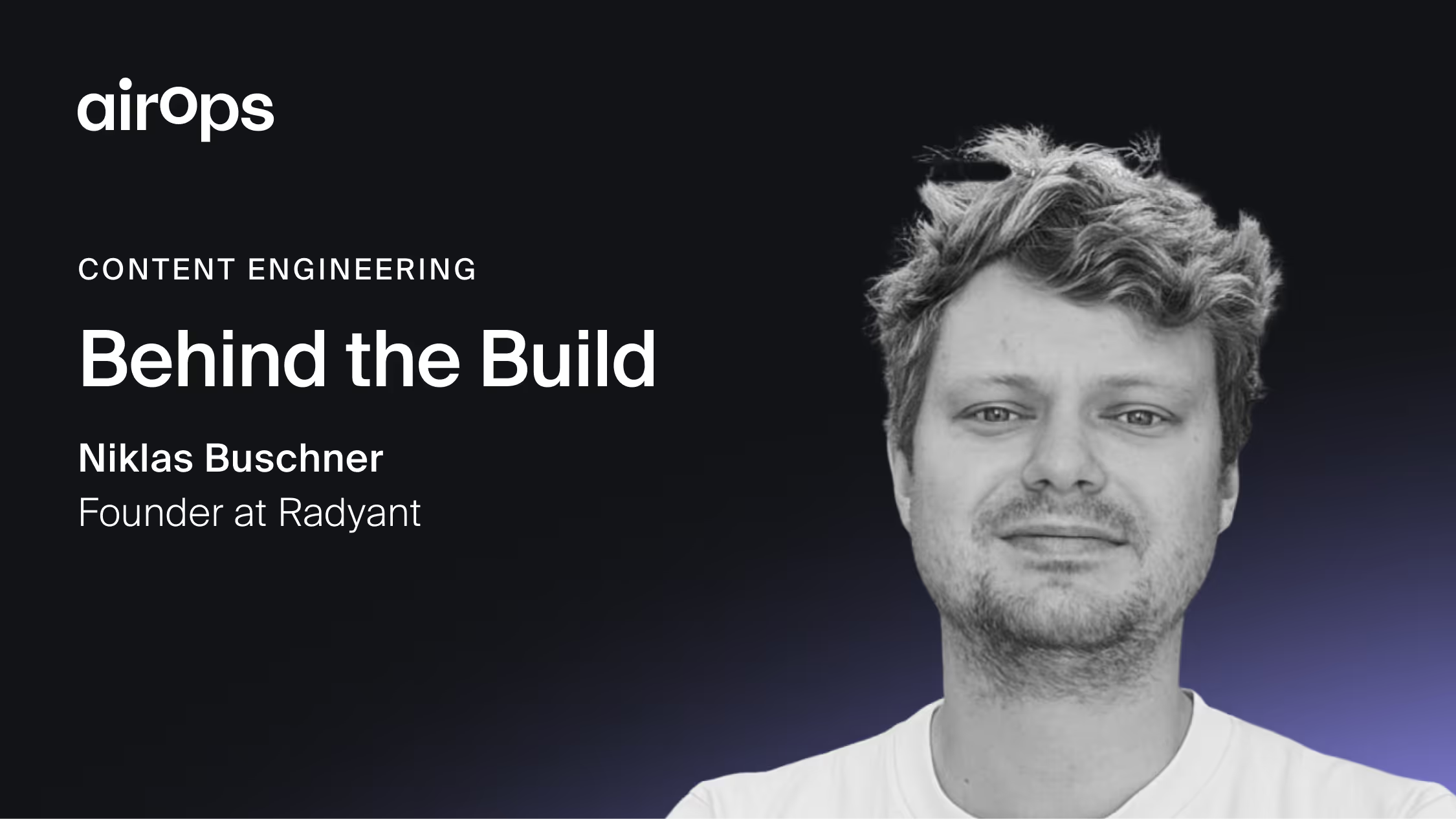
.avif)
